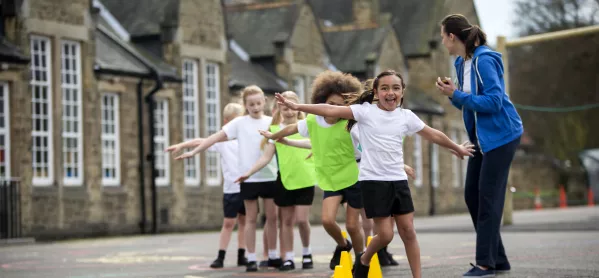Traditional approaches to physical education and schools sports have failed to increase physical activity among primary school pupils, an academic has said.
The comments were made as teachers and public health experts prepare to meet in Leeds to try to devise a new primary PE programme.
Quick link: Two-thirds of adults think PE should be a core subject
Quick link: PE time cut by more than almost any subject
Opinion: How team sports can protect pupil mental health
The conference, organised by Yorkshire Sport Foundation, Public Health England and Leeds Beckett University, aims to help primary schools in the region embed more exercise and activities into the school day, and then extend successful approaches beyond Yorkshire.
Andy Daly-Smith, senior lecturer at Leeds Beckett’s Carnegie School of Sport said: “Children are less active, less fit, more overweight and present more issues of poor mental health than at any time in our past.”
Mr Daly-Smith added that a more holistic view of education was emerging, with a growing focus on physical and mental wellbeing.
“Traditionally, the focus has been physical education and school sport,” he said. “Yet, so far, these strategies alone have failed to achieve significant improvement.”
Dan Wilson, Yorkshire Sport Foundations education lead, said he recognised school leaders were under pressure to improve standards in English and maths, but “this must not be at the expense of their pupils’ mental and physical health”.
Public Health England said around three million children - equivalent to 43.3 per cent of the total - led active lives, doing an average of 60 or more minutes of physical activity a day.
Nicola Corrigan, its health and wellbeing programme manager for Yorkshire, said: “Where schools have succeeded they’ve taken a holistic approach.
“They’ve engaged pupils and listened to what works for them, created active environments, offered choice and variety of activities, embedded physical activity in the curriculum and teaching, promoted active travel to-and-from school and provided the school workforce with the skills they need to encourage pupils to move more.”





